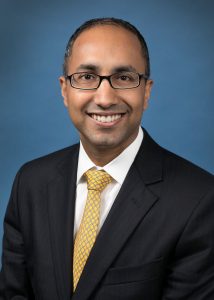Dr. Marvin Singh Explains Gut Health
 Gut health is one of the core components of overall health. That’s because of our microbiome, which is an ecosystem of trillions of bacteria that live in our bodies, primarily in our digestive tract. These bacteria release chemicals in response to a wide variety of stimuli, whether food, toxins, exercise, or stress, and these chemicals influence our health.
Gut health is one of the core components of overall health. That’s because of our microbiome, which is an ecosystem of trillions of bacteria that live in our bodies, primarily in our digestive tract. These bacteria release chemicals in response to a wide variety of stimuli, whether food, toxins, exercise, or stress, and these chemicals influence our health.
Lifestyle & Gut Health
Unhealthy lifestyle choices can cause an imbalance in the microbiome that results in illness. There are easy lifestyle changes that we can make to improve gut health, such as exercising regularly, getting enough sleep, reducing stress, and adhering to a healthy diet. While diet is often believed to be the most important factor in gut health, these other factors are also very critical. For instance, exercise improves the resiliency of the microbiome, and it doesn’t need to be high-intensity exercise either. Just moving regularly can strengthen your microbiome. Sleeping seven to eight hours a night is also vital to maintaining microbiome health.
A stronger microbiome leads to better health outcomes, in general. Studies have shown that people who practice four or more healthy lifestyle behaviors, when compared to those who don’t, have a 66% less chance of dying from any cause. Simply put, our digestive health is a key to living a happier, less-stressful life.
But a personalized approach to gut health is necessary because our microbiomes are only 10% to 20% similar. So, adhering to a particular diet that works for someone else, whether to lose weight or reduce inflammation, may not be beneficial for you. Tailoring diet and lifestyle measures to individual patients’ needs are some of the hallmarks of good integrative medicine practice and can make big differences in health promotion and disease prevention.
Dr. Marvin Singh is an integrative gastroenterologist in San Diego, CA, and a Diplomate of the American Board of Integrative Medicine® (ABOIM®), which is governed by the American Board of Physician Specialties® (ABPS).






